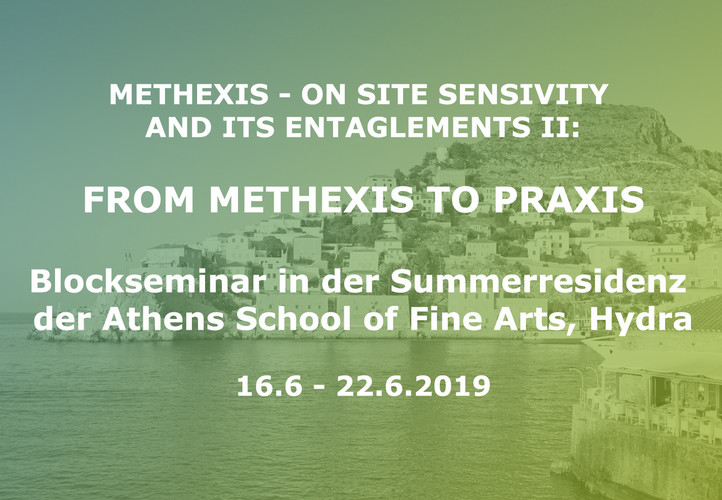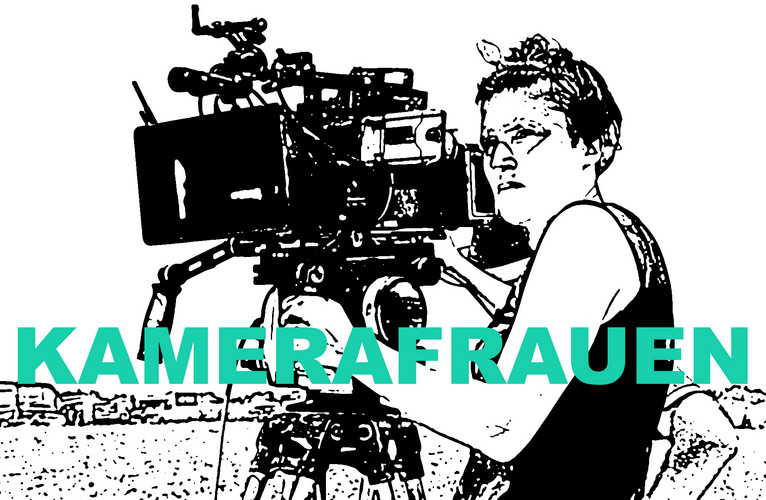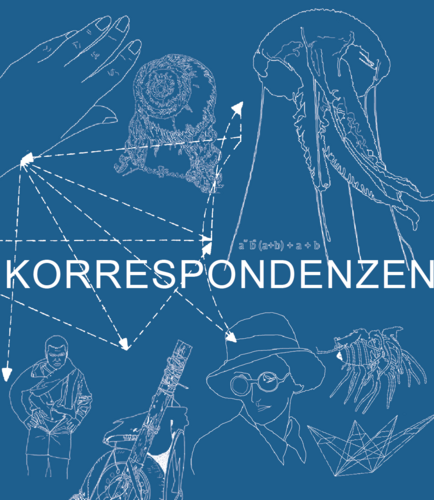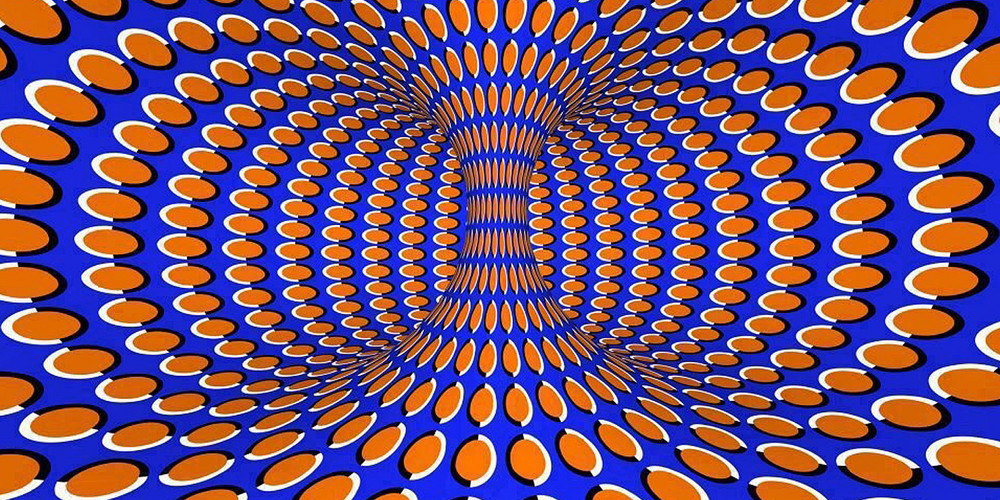Sommersemester 2019
METHEXIS - on site sensitivity and it's Entanglements ll: from Methexis to Praxis
Nina Fischer & Marina Fokidis
WHAT IS TOPOS? (LOCATION) AND WHAT IS TIME IN THE GLOBALISED HYPERLINKED BRAVE TRANSWOLRD?
How necessary is it to speak exclusively in terms of concrete geography and distinctions? Especially, if we want to define a destiny that claims real freedom or at least an attempt at it. From where do we start, if we want to open up a possibility for discursive change to occur? Whose experiences are being narrated here by whom and why?” How can we go even further, beyond the cultural dependence between the “center” and the “peripheries”?
Through various meetings with local cultural professional of the island of Hydra, visits in exhibitions and historical as well as private archives., lectures by Greek art or international art professionals, group readings, film projections, discussions as well as practical- sensitive exercises - like walking and swimming and peripatetic seminars, students will be invited to approach and understand- in praxis- a new location, the historical island of Hydra. The idea is not only to understand the history and the contemporaneity of Greece, but also the limitations and parameters of our own physical beings and coexistence. Creating new commons, based on empathy and resonance, and through the shaping of a collective or individual minor practical projects, will be a bliss.
The methodology of the class will be based on the book The Troubadour of Knowledge by Michel Serres as well as to the methodology of the Aristotelian peripatetic academy.
KAMERAFRAUEN
Lilli Kuschel
2018 wurde zum ersten Mal in der Geschichte der Oscars eine Frau für die beste Kamera nominiert. Bei nur 2 % weiblichen DOPs in Hollywood nicht gerade verwunderlich. Über 90 % der bewegten Bilder in Kino und Fernsehen in Deutschland werden von Männern gestaltet. In diesem Seminar werden Filme und Biografien ausgewählter Kamerafrauen vorgestellt und diskutiert, die die Gestaltung des Bildes als essentiell für den eigenen künstlerischen Ausdruck verstehen. u.a. mit Babette Mangolte, Elfie Mikesch, Ulrike Ottinger, Maya Deren, Sophie Maintigneux, uvm.
Teil des Seminars ist die Film und Kunstreihe „ Korrespondenzen“. Jeweils zwei Künstlerinnen treffen anhand ihrer verschiedenen künstlerischen/ filmischen Positionen im Kulturverein ZwingliKirche aufeinander.
Unter dem thematischen Aspekt der Umwidmung kommen Künstlerinnen und Publikum ins Gespräch.
Kuratiert und moderiert von Isabell Spengler, Sonya Schönberger, Lilli Kuschel und Stefanie Gaus.
Gefördert durch DiVAversity of Arts – ein Projekt der Frauenbeauftragten der UdK Berlin mit Unterstützung des KulturRaum Zwingli-Kirche e.V.
Creating (more) Madness
Dr. Marjan Sharifi
Are you mad? Where is the boundary between madness and “normal” functioning? How has this boundary been created and is it necessarily something negative? The goal of the course is to uncover how cultures induce madness, and what madness induces in us. In particular, we will examine the production of subjectivity and its role in creating madness. Accordingly, two lines of inquiry will be investigated: the first focuses on the altered state of mind and the second on embodied practices.
During the seminar, expect to participate in group work, in-class experimentation, and also lively discussions based on the weekly assigned readings. This class welcomes all interested students, and no cognitive science or philosophy background is needed. The lecturer holds a PhD in psychology, a degree in philosophy, and empirical training in cognitive neuroscience, and looks forward to guiding students of all levels through the interdisciplinary landscape of Creating Madness.
Bist du wahnsinnig?! Wo überhaupt liegt die Grenze zwischen Wahnsinn und „normalen“ Funktionieren? Und wer hat diese Grenze gezogen? Ist Wahnsinn immer etwas Negatives? Das Ziel dieses Seminars ist zu enthüllen, wie Wahnsinn in unserer Kultur produziert wird und was Wahnsinn in uns auslösen kann. Entsprechend, ermitteln wir in zwei Richtungen: Zunächst fokussieren wir die eigene Subjektivität im Hinblick auf veränderte Bewusstseinszustände. Anschließend untersuchen wir, wie äußere Umgebungen Einfluss auf unser Bewusstsein nehmen können.
Das Seminar besteht aus zahlreichen Gruppenarbeiten, Kurz-Experimenten sowie lebhaften Diskussionen zu den wöchentlich verteilten Texten. Alle Studierenden sind herzlich willkommen - es wird kein Vorwissen in den Bereichen Kognitionswissenschaft oder Philosophie benötigt. Die Seminarleiterin ist Doktorin der Psychologie, Bachelor der Philosophie und ausgebildete Kognitionswissenschaftlerin und sie freut sich darauf, die Teilnehmenden bei der interdisziplinären Erkundung des Wahnsinns zu begleiten.



